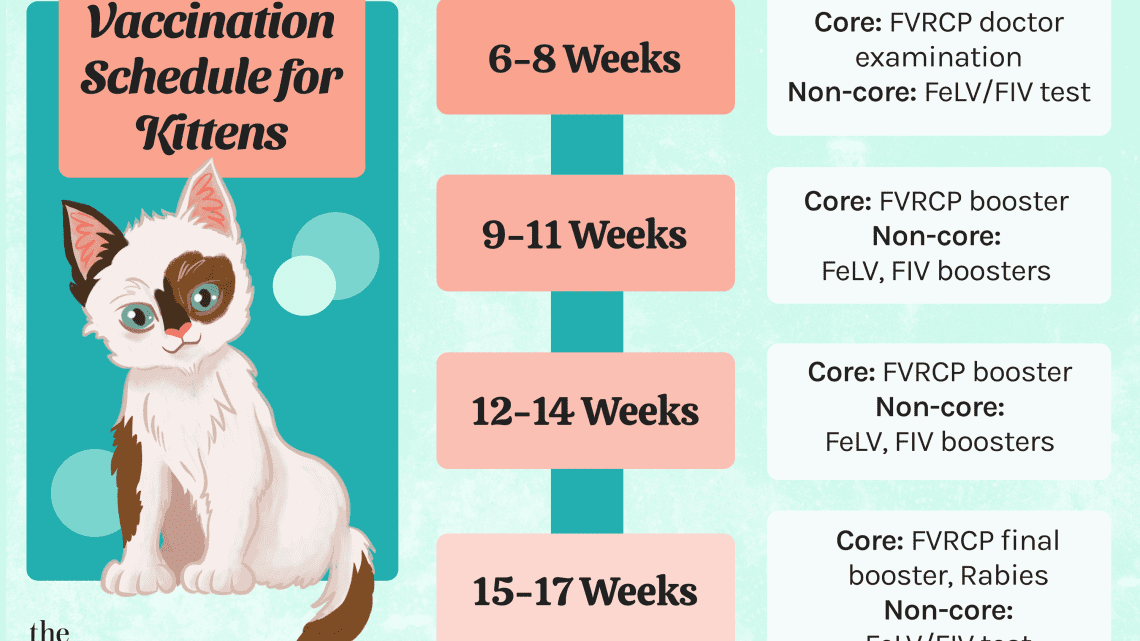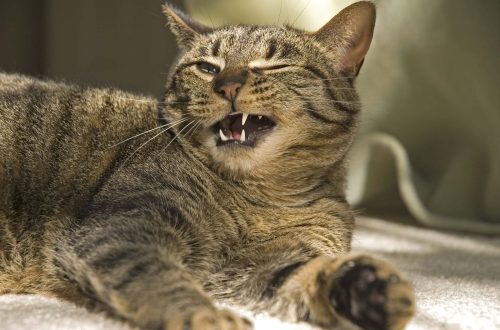
When to vaccinate a kitten for the first time and what threatens reluctance to vaccinate an animal
If the appearance of a small kitten in the house happened unexpectedly and the owners do not know? what to do with it, visit the vet. This first step will be the key to a very long and healthy life of a small funny creature in harmony with the owners.
Contents
Why you need to get vaccinated
Many owners think that if it is not supposed that the animal will walk on the street, but will constantly be in the apartment, there is no need to do vaccinations. If for some reason the owners do not want to vaccinate their kitten, then this list will help to take correct solution.
- Protect from infection with dangerous diseases.
- Participation in exhibitions requires mandatory vaccination of animals.
- Traveling outside the borders of the state with a pet is allowed only if the animal has a veterinary passport with all the vaccinations required in accordance with the age of the individual.
Age at which kittens are vaccinated
Disease prevention is the best way to deal with the consequences. As everyone knows, prevention is better than cure. Moreover, most vaccinations are made against incurable diseases, the infection of which entails death or incurable consequences. That is why kittens need a whole range of vaccinations, which will protect this little creature from external influences of an aggressive viral environment.
When to vaccinate a kitten for the first time, many kitten owners ask themselves this question. It is best to start the vaccination process as early as possible. Experts recommend doing them at the age of two months. But if the kitten is not taken out into the street, then from the age of three months it will not be too late to do this. The main thing is that at that time the animal looked completely healthy and the behavior did not differ from the norm.
It is better to start vaccination when the kitten is already adapting to a new place of residence and will not be stressed due to possible relocations and unfamiliar surroundings.
List of mandatory vaccinations and preparation
Of course, veterinarians recommend a lot more vaccinations for kittens to protect them from all possible diseases. But if the hosts want to limit this list, then these four vaccinations a must for pets.
- Caliciverosis.
- Panleukopenia.
- Rabies.
- Rhinotracheitis.
There are also complex vaccinations, which are called polyvalent vaccines. These vaccines can protect against several diseases at once, as they contain antigens from several viruses.
There are other vaccines, which also need to be done to prevent a number of diseases. For example, kittens are vaccinated against ringworm (microsporia, trichophytosis), vaccinated against chlamydia infection, which generally has a beneficial effect on the future health of cats.
To get the desired results from vaccinating a kitten, its body must be prepared before vaccination. Preparation consists in carrying out activities related to the prevention or treatment of worms. This procedure should be carried out a week before the expected date of vaccination. Ignoring the procedure can complicate the consequences of vaccination and cause complications, and possibly death of the animal.
Kitten behavior after vaccination
To protect the animal from undesirable consequences that may be associated with allergic reactions of the body to the vaccine, the kitten should be under the close supervision of a specialist for the first twenty minutes after vaccination. But this is an ideal case and often this is not possible. Therefore, the owners have to look after their pet themselves. Thus, the owner needs to have an idea of how the pet may behave after vaccination.
Usually the first vaccination reduces the activity of the kittenand this may take several days. The animal becomes lethargic, constantly sleeping, and this is a normal condition during this period. Subsequent vaccinations should not give such a reaction and the behavior of the kitten should not change. But this is not always the case. There were cases when the first vaccine did not affect the kitten’s behavior at all, and he remained alert and active all the subsequent time. And when they did the second, lethargy and drowsiness set in. So everything is individual.
Frequency of vaccination
Between the first and second vaccination should take almost a month. The ideal frequency, on the recommendation of experts, is due to twenty-five, twenty-seven days. But more detailed information can be obtained from a doctor and depends on the individual characteristics of the animal.
The first and second vaccinations should be given the same drugs. And all information about vaccination must be recorded in a special pet document. This is a veterinary passport and will be issued at the first visit to the veterinary clinic. All information about the host and vaccinations must also be recorded in a special clinic registration log.
Some vaccinations, such as the rabies shot, will have to be done every year. Because the effect of this vaccine is designed for a year period. So for all questions about the frequency of vaccination, it is better to contact your veterinarian.
Vaccination without unwanted consequences
There are a number of rules, under which the owners of kittens can minimize the undesirable consequences that may occur after vaccination. First of all there should be vaccination schedule followed. The vaccine must be checked for the date of manufacture and its expiration date.
It is contraindicated to vaccinate the animal for three weeks after operations. You should not be vaccinated if your kitten has been seen in contact with a sick animal. It is contraindicated to do surgery earlier than a month after vaccination. It is strictly forbidden to vaccinate an animal that has antibiotics were prescribed. It is not difficult to observe all this and it is desirable so as not to harm the little ward.
So it becomes clear that vaccination is no less important for kittens than a balanced diet and daily care. To maintain the health of the animal and increase its immunity, which will allow it to fully develop, you need to follow the recommendations of veterinarians and regularly do the necessary vaccinations.





